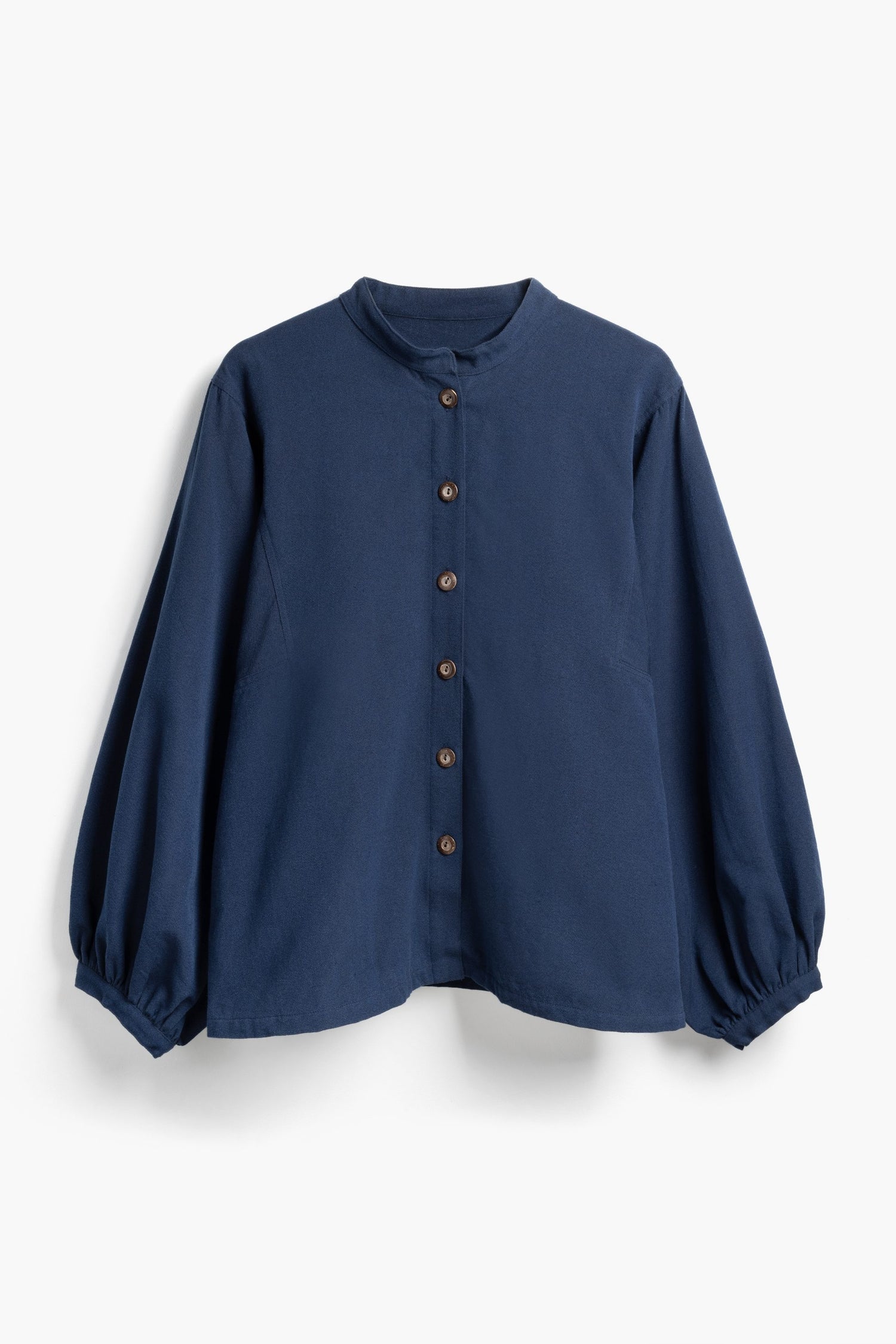Our Sustainability Principles
Indilisi is rated 'Great' – the highest rating on Good on You
Our core mission is to create textiles and clothing with sustainability and fair trade at their heart. We create high-quality, ethically made products that respect both the environment and the people who make them.
Read about our 10 key sustainability principles below.

1. Sourcing for a Greener World
We design products and our business model working in close partnership with value aligned social enterprises who like us are committed to fairness and regenerative practices.
How we build relationships, design products and run our business is important in supporting livelihoods of artisans and farmers.
Our clothing is made using certified organic cotton, grown without synthetic pesticides or chemicals, and produced in a way that supports local farmers and communities.

2. Fair Trade Principles in Business
We partner with social enterprises and fair trade organisations who follow fair trade principles and better labour practices. This ensures that workers are paid fairly, work in safe conditions, and are supported with social benefits such as healthcare.
By producing in this way we support the most economically disadvantages people in rural communities in the global south.

3. Organic, Fairtrade and Regenerative Farming
Our organic cotton is grown using lower impact organic or regenerative farming techniques, which aims to restore soil health, reduce carbon emissions, and protect water resources. By not using synthetic pesticides and herbicides, we protect ecosystems from degradation. This approach helps improve the long-term health of the land, biodiversity and the farmers and their families.

4. Saying No to Plastic
We do not use plastic or synthetic materials made from oil-based products. Plastic fibres, like polyester, nylon, and acrylic are derived from fossil fuels and contribute to pollution in our oceans and landfills. Instead, we focus on natural, biodegradable materials, such as organic cotton and recycled cotton fabrics, that are both safer for the environment and suitable for responsible fashion production. We believe in reducing our reliance on plastics and choosing materials that can return to the earth.

5. Timeless Classics
Our clothes are designed to be simple and timeless. We focus on producing classic shapes and garments that are made to withstand trends, rather than adding to the cycle of fast fashion. By choosing certified organic, handwoven and hand finished materials for our garments and clothing, we aim to create well-made garments, and reduce the need for frequent replacements.

6. Minimising Waste
We are committed to reducing waste at every step of our production process wherever possible. This means designing garments to minimise cutting waste, ordering in smaller batch quantities and working with our artisans to reduce overconsumption. We are also developing a range of recycled and upcycled products to use up leftover yarns and fabrics.
For our surplus fabrics, these are certified organic and fair trade deadstock fabrics which have been saved for use. Offering a lower impact option for brands and designers.

7. Minimising Energy & Water
Our garments are handwoven and hand embroidered in a rural village in Bangladesh. The yarn that is dyed and processed is certified organic. When it reaches the village, it is carefully bobbined and put into hanks that can then be fed onto the hand looms, from there it is woven into cloth and stitched into garments.
We design our garments to have as minimal steps as possible to reduce land transport.
For our surplus fabrics, the factories where they are produced uses renewable energy to power 70% of their operations, and they follow gold standard water management practices to minimise water usage in production.

8. Transparency & Traceability
We are a small brand, with a big mission - to produce our products in the best way we can for the people in our supply chain and the environment.
We aim to be as transparent as possible, working with our partners for long term solutions. We source on this basis and aim to improve our reporting and traceability as we grow - with our digital product passport coming soon!

9. Promoting Sustainable Living
At Indilisi, sustainability is part of our core business model. It is more than the items we create, it is in our partnerships and our advocacy for sustainability: fostering a way of living and ensuring a just transition.
We created Indilisi Magazine, a platform where we share ideas, stories, and insights on sustainable living, where we aim to inspire others to embrace more mindful choices in every aspect of their lives.

10. Advocating for a Fair & Regenerative Fashion Industry
The current system of fast fashion, with its endless cycles of production and consumption, is unsustainable and damaging to the planet.
We are committed to changing the narrative, to one where fashion isn’t about constant growth but about reducing the resources we depend on and producing in a way that gives back to the soil.
A regenerative fashion industry seeks to restore and regenerate both the environment and the communities in the supply chain.
This means moving away from the linear "take-make-waste" model and embracing a circular system that nourishes ecosystems, strengthens local economies, and promotes fairness at every level.
We see a world where fashion contributes to the regeneration of the planet’s health - be it through biodiversity restoration, water conservation, or the empowerment of workers.
Through our partnerships, we aim to pioneer a new way forward - one where regenerative farming, circular practices, and fair trade principles take the lead.
Every choice we make is part of a long-term vision to create a more responsible fashion industry.
By prioritising organic or regenerative farming, circular practices and Fair Trade principles, we aim to create a system where fashion looks after the planet and empowers the communities who craft our clothing.
